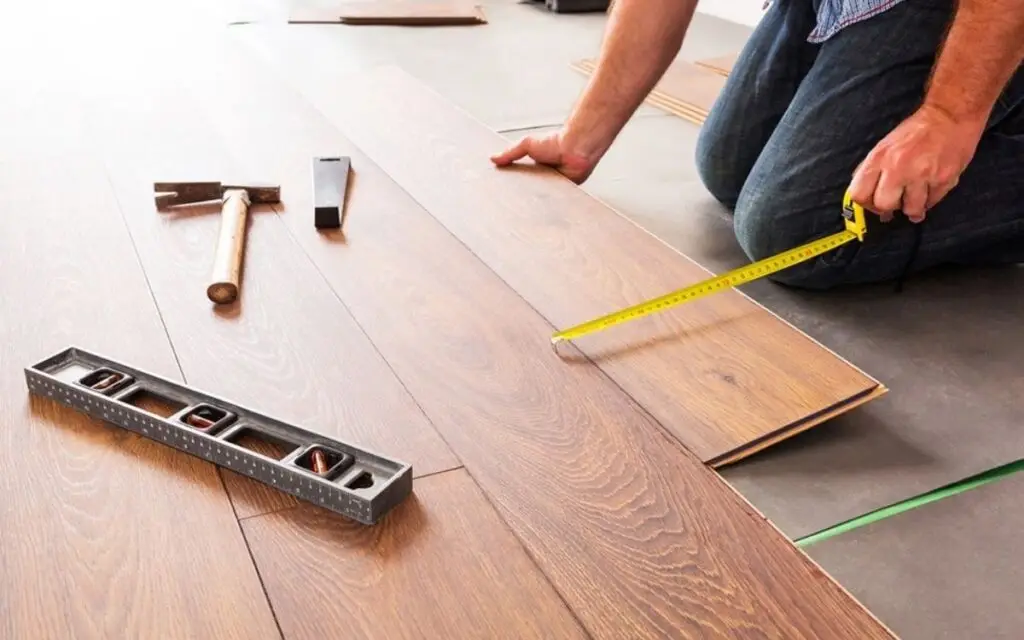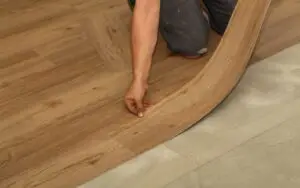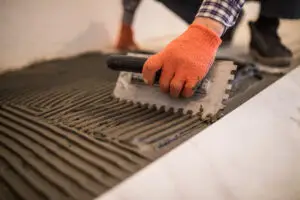Understanding DIY Flooring Installation Costs
Initial Costs of DIY Flooring
Material Costs
When attempting a DIY flooring installation, one of the first costs you will encounter will be the price of the materials themselves, such as the flooring, underlayment, adhesives, and any trims or transitions. While you will pay less for materials compared to what a professional installer would pay, you may not have access to wholesale prices and may not know the best types of materials for your specific job, which can end up costing you more in the long run.
Tool and Equipment Costs
DIY flooring installation also requires specific tools such as a tapping block, pull bar, spacers, a flooring saw, a level, and a measuring tape. Depending on your flooring type, you may also need a tile cutter, a grout float, and many other specialized tools. These tools can be very expensive, and if you don’t already own them, the cost of purchasing or renting them, can quickly add up, and sometimes cost more than hiring a professional who already has all of these tools.
Hidden Costs
There are many potential hidden costs in DIY flooring installation, such as the cost of wasted materials from incorrect cuts, or the need to purchase extra materials if you miscalculate how much you need, and shipping costs. You may also have unexpected costs if the project takes longer than anticipated, and you need to rent tools for a longer time, or purchase more tools than anticipated. All of these potential hidden costs should be taken into consideration when deciding if DIY is right for you.
Potential Risks and Challenges of DIY
Common DIY Mistakes
DIY flooring installations are prone to several common mistakes, such as not properly preparing the subfloor, using the incorrect tools or adhesives, misaligning planks or tiles, and not leaving expansion gaps. These mistakes can lead to an uneven floor, gapping, buckling, and a much shorter lifespan for your flooring, and will eventually cost more to fix than if you had hired a professional to begin with.
Rework and Repair Costs
DIY mistakes often require costly rework and repairs. If the flooring is not installed correctly, it might need to be reinstalled or require new materials, and sometimes, the entire job might need to be completely redone, which can be very expensive and time consuming. These are very important considerations when deciding if a DIY project is the correct choice for you.
Professional Flooring Installation Costs
Costs of Professional Installation
Labor Costs
Professional flooring installation includes labor costs, which can vary depending on the type of flooring, the size and complexity of the project, and the rates in your area. These rates will usually cost more than the initial costs of a DIY project, however, the value that is received for those costs are well worth the expense, and will usually save you money in the long run.
Material Costs
Professional installers may charge slightly more for materials, but this is usually due to the fact that they have access to higher quality materials that are not readily available to the public. Professional installers also know the best types of materials for each specific situation, and will always provide materials that will last a long time, which is essential for protecting your investment.
Warranty and Guarantees
Professional installations often include warranties on both the materials and labor. This warranty will protect you from any potential issues or defects that may occur after the installation is completed. DIY installations do not come with any warranty, and all issues will be entirely your responsibility, adding a lot of risk to a DIY install.
Benefits of Professional Installation
Expertise and Efficiency
Professional installers are experts in their field and can complete projects quickly, efficiently, and correctly, due to their years of experience, and their specialized training. They also have all of the necessary tools and equipment, which allows them to work much faster, and with better results than a DIYer ever could.
Long-Term Savings and Value
Professional flooring installation offers long-term savings by ensuring a durable and long lasting result, and avoiding costly mistakes. While the initial investment is usually higher, the long term value that is received is almost always worth the additional expense. This is often why most homeowners will choose a professional installer for these types of jobs.
DIY vs. Professional Flooring: A Detailed Comparison
DIY Installation: Pros and Cons
Potential Savings
The main advantage of DIY installation is the potential for upfront savings on labor costs. If everything goes well, you might save a little money, however, it’s also very common that DIY projects often end up costing more than a professional install, due to all of the common problems that are associated with these types of projects.
Risks and Challenges
DIY installation has several risks and challenges, such as the potential for making costly mistakes, damaging materials, requiring rework, and spending a lot more time on the project than anticipated. When considering these risks, it is often best to choose a professional installer for most projects.
Professional Installation: Pros and Cons
Expertise and Quality
Professional flooring installation guarantees expertise and a higher quality result. They have all of the skills, knowledge, and tools, to complete the project correctly, and in a way that will last for many years to come. This is one of the best reasons to hire a professional for your flooring install.
Higher Initial Costs
Professional flooring installation typically has a higher initial cost due to labor charges and premium materials. However, when you consider the value that you receive in return, many homeowners find that a professional install is well worth the extra expense. The extra expense also protects the value of the investment in your home, and ensures long term benefits.
Case Studies: DIY vs Professional Results
Example of a Costly DIY Mistake
A homeowner attempted a DIY hardwood flooring installation to save money. However, they did not properly prepare the subfloor and used the wrong adhesive. The result was an uneven floor, gapping, and buckling, which required an expensive repair, and a complete re-install by a professional installer, costing much more than if they had hired a professional in the first place.
Example of a Successful Professional Install
Another homeowner hired a professional installer for their vinyl plank flooring installation. The installers correctly prepared the subfloor, installed the vinyl planks with precision, and completed the job quickly and efficiently. The homeowner was extremely happy with the high-quality results, and the peace of mind that they received, knowing that their floors will last for many years to come.
FAQs & Answers
While DIY flooring installation may seem cheaper initially, it often comes with hidden costs such as tool rentals, wasted materials, and the potential for mistakes that require rework. These unexpected costs can quickly add up, making professional installation a more cost-effective option in the long run. Professional installers also have the expertise to avoid these common problems, and they use tools and techniques that provide much higher quality results.
Common mistakes with DIY flooring installations include not properly preparing the subfloor, using incorrect tools or adhesives, misaligning planks or tiles, and failing to account for expansion gaps. These mistakes can lead to an uneven floor, gapping, buckling, and the need for costly repairs. Professional installers are well-trained to avoid all of these issues, and they always guarantee the quality of their work.
Professional flooring installers save time and money through their expertise, efficiency, and access to high-quality tools and materials. Their experience allows them to complete projects quickly and correctly, which minimizes the risk of errors and rework. Because they know what they are doing, they can always get the job done much faster than a DIYer, with no problems, and no unnecessary stress.
Professional flooring installation services often provide warranties that cover both the materials and the labor. These warranties give you peace of mind knowing that any issues arising from the installation will be addressed without extra costs to you. DIY installations, however, do not come with any warranty, and the cost of any fixes, or replacements, will always be entirely on you.
It’s best to hire a professional flooring installer when you want a high-quality result, when you lack the necessary skills or tools, or when the project involves complex layouts, or specific materials. Professional installers provide warranties on their work, which give you added protection against the unknown. If you want to protect your investment, and have a long-lasting and durable install, then a professional is the best choice.





